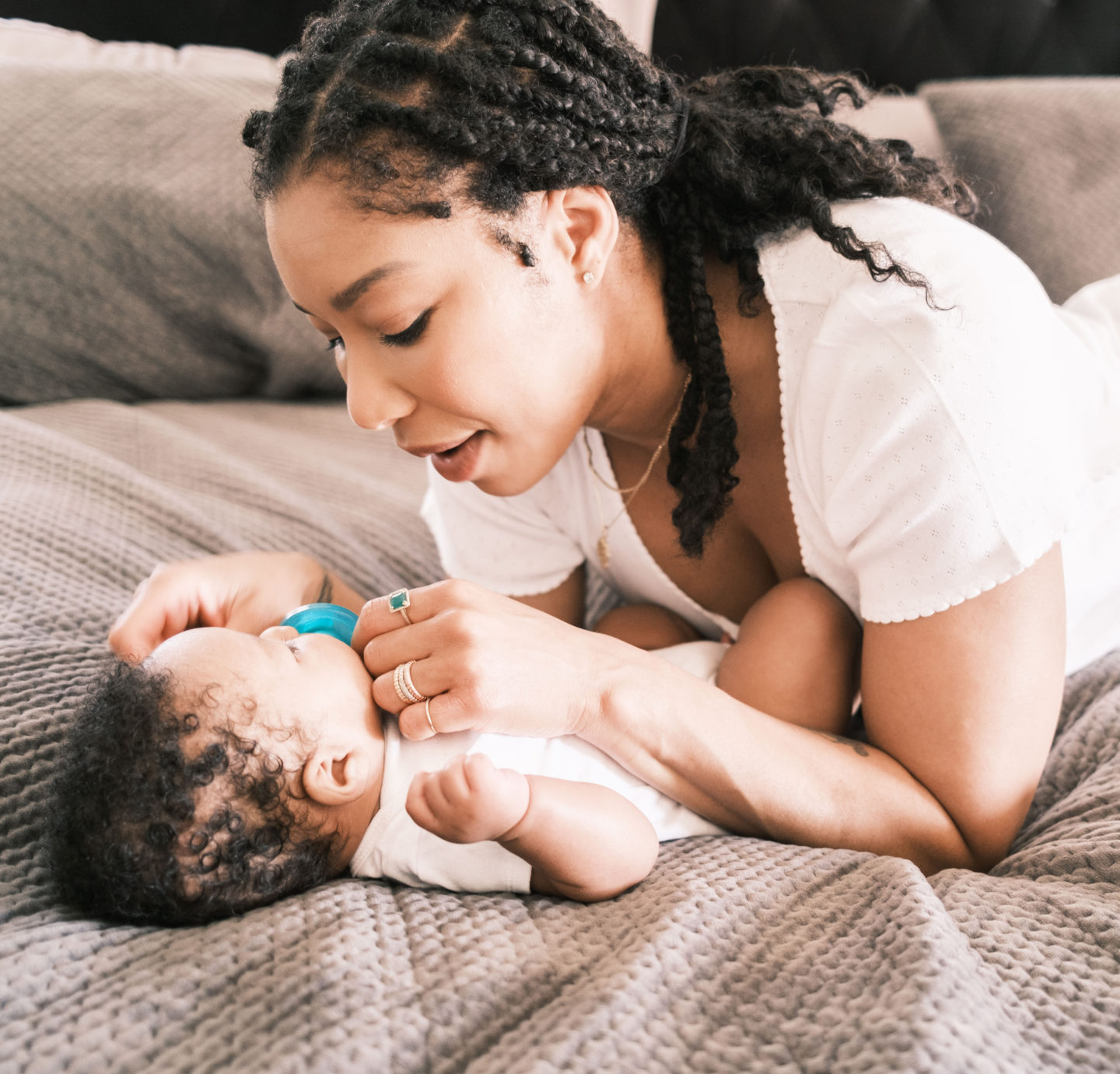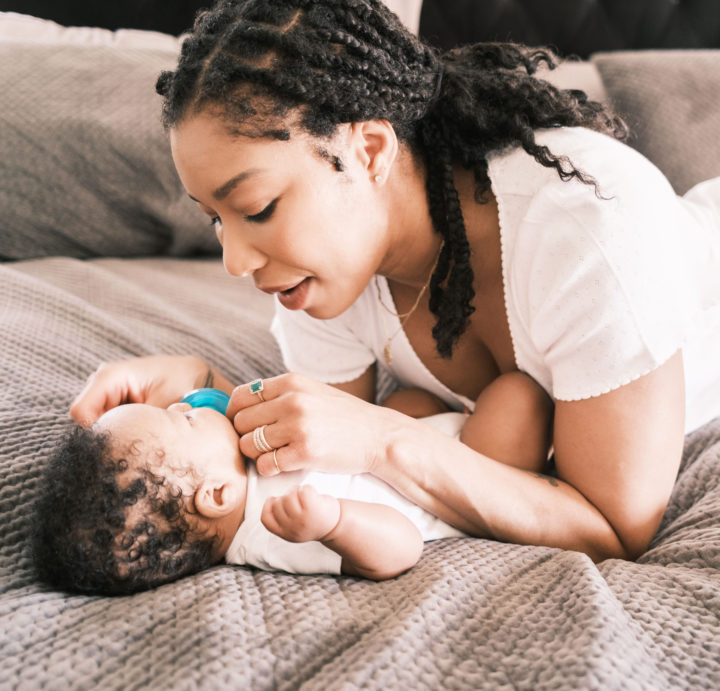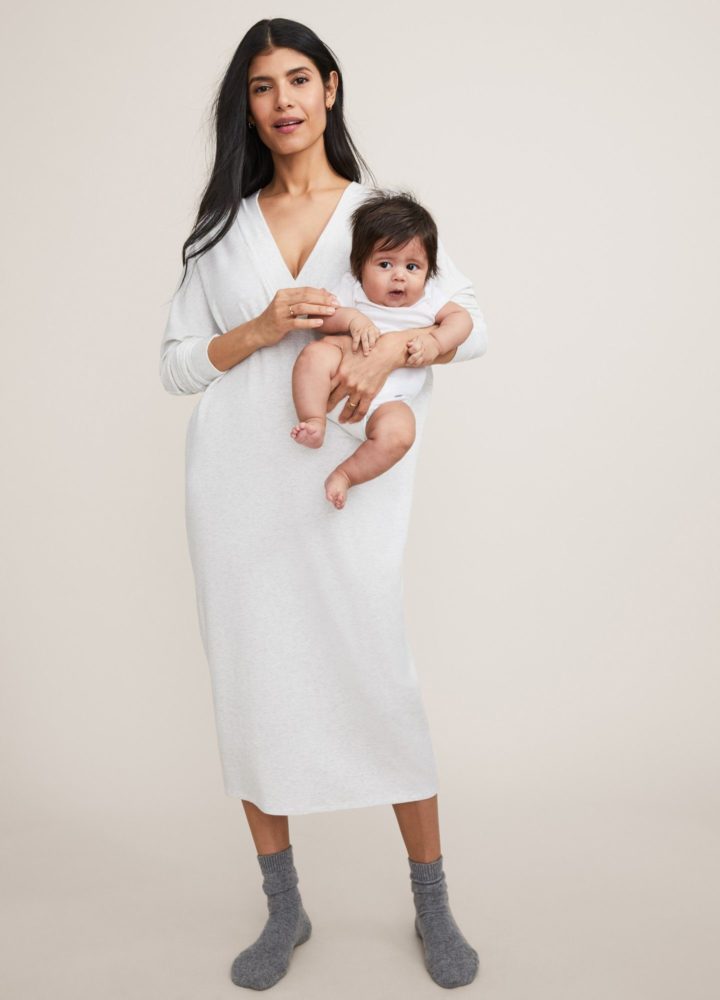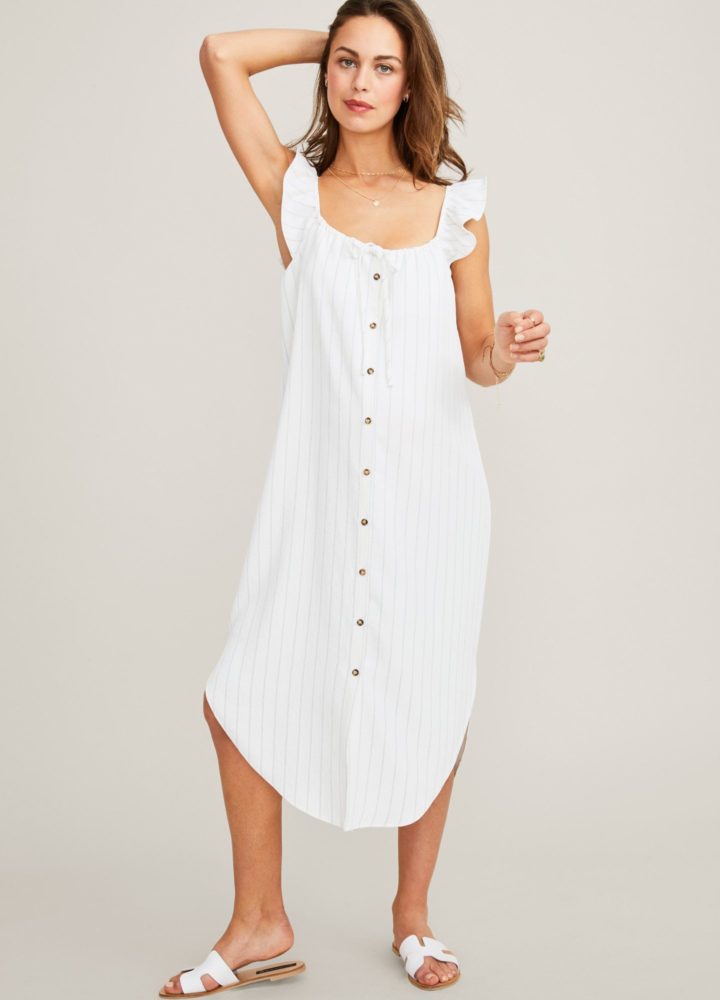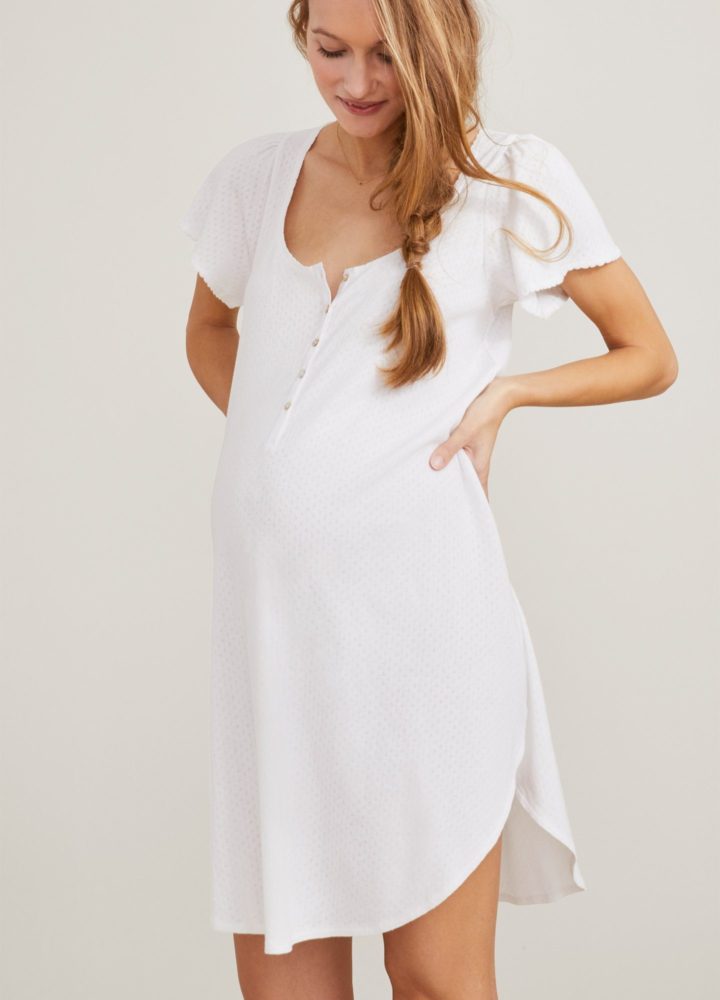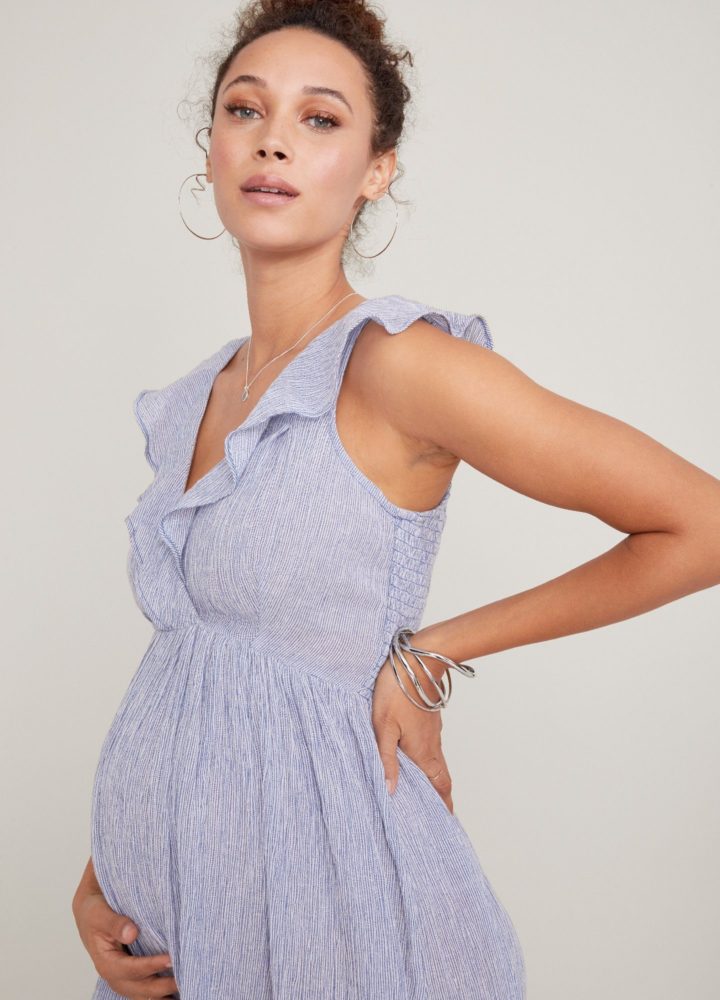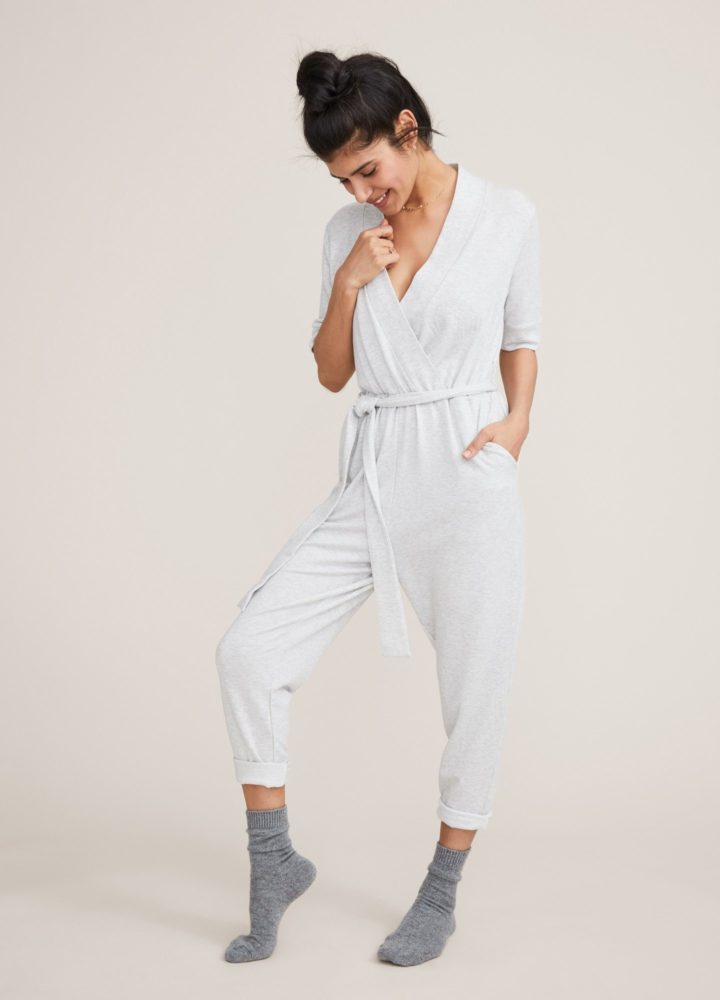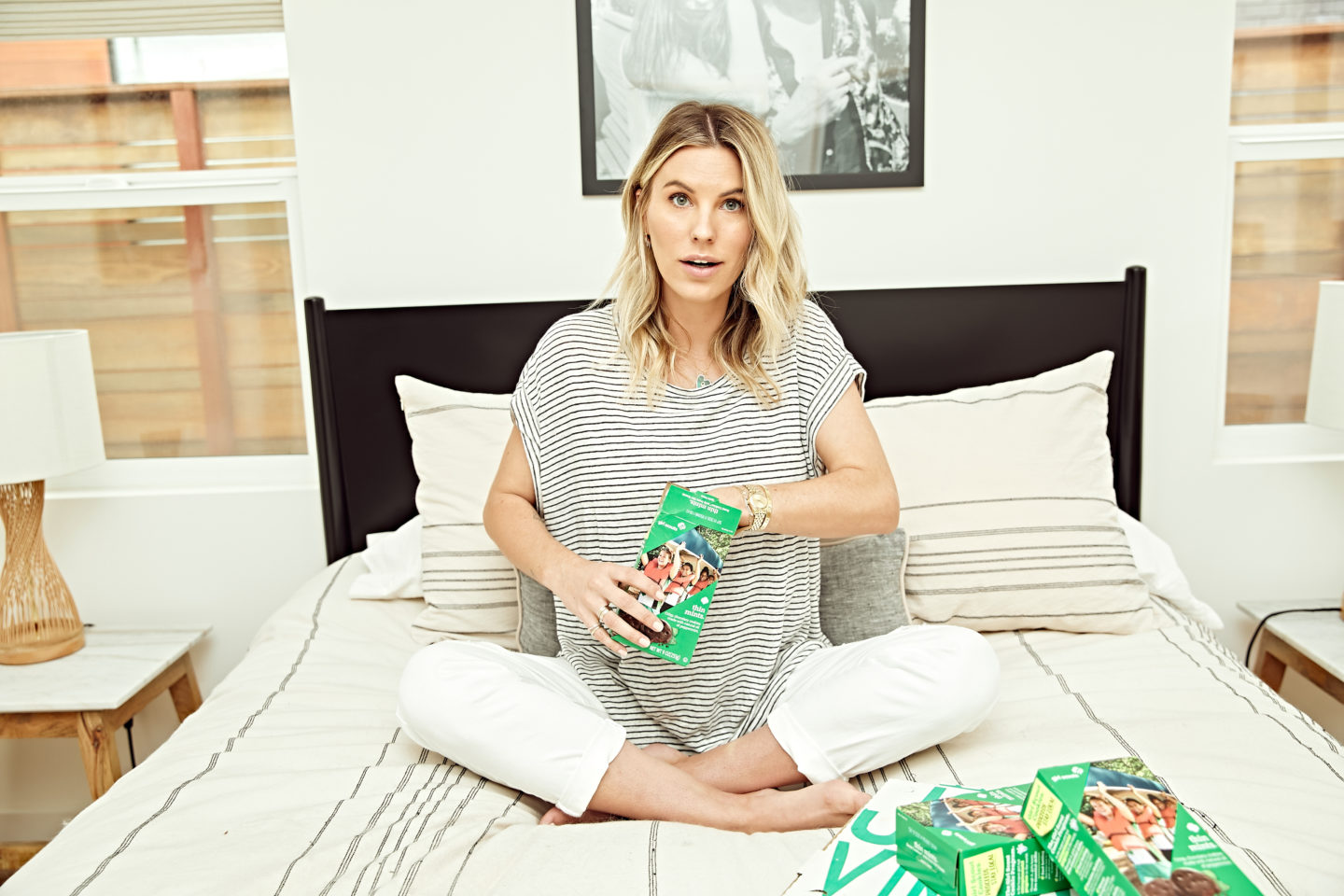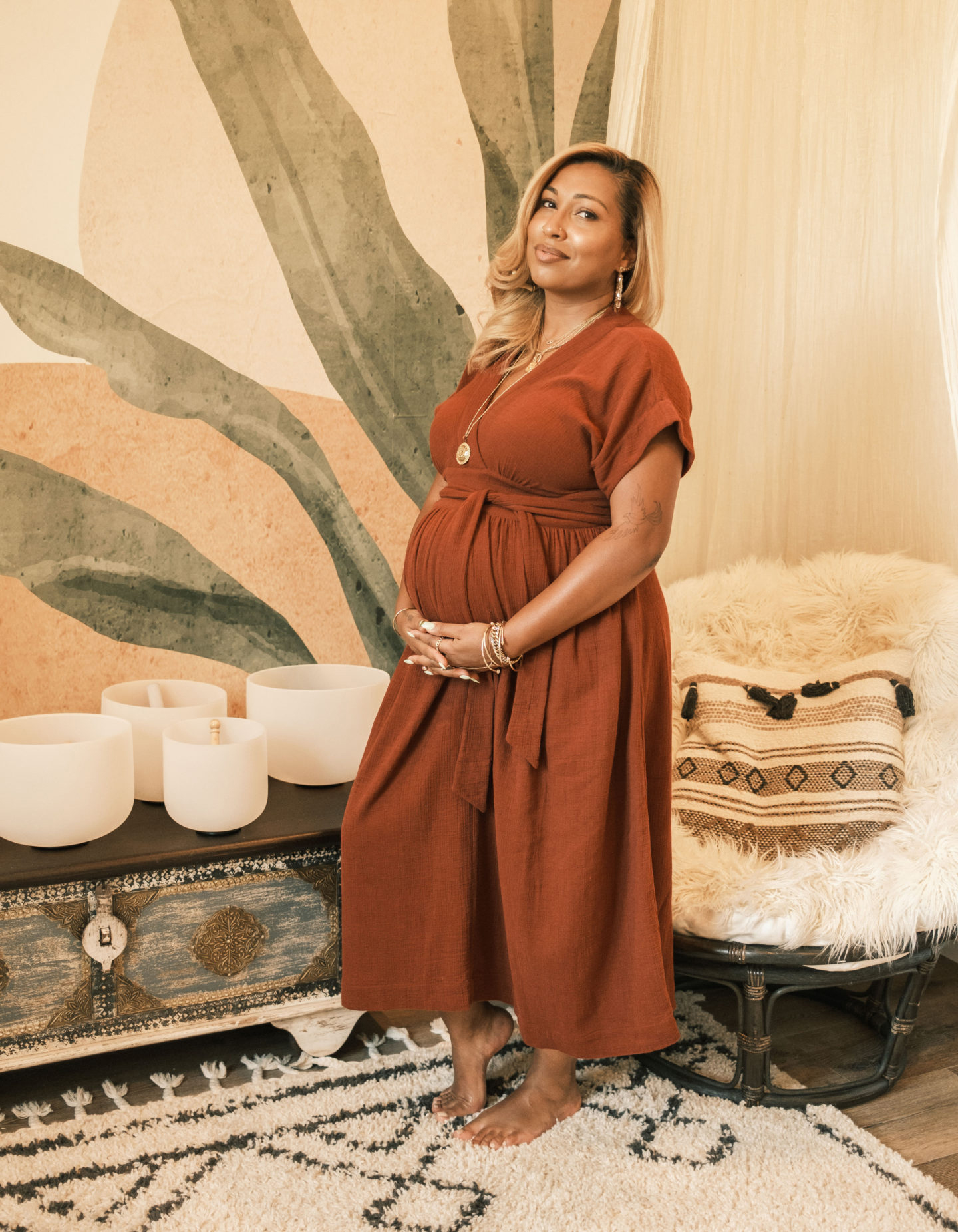You may recognize Simone from the early days of Vine (you can still watch the hilarity on YouTube) or from any of the many movies she’s co-written or acted in—the list is long. Now she’s taking on a new kind of role: Mama.
This multi-talented mama opens up about her five-year road to pregnancy. Plus, advocating for Black women in the medical care system, why she went vegan, and settling into mamahood.
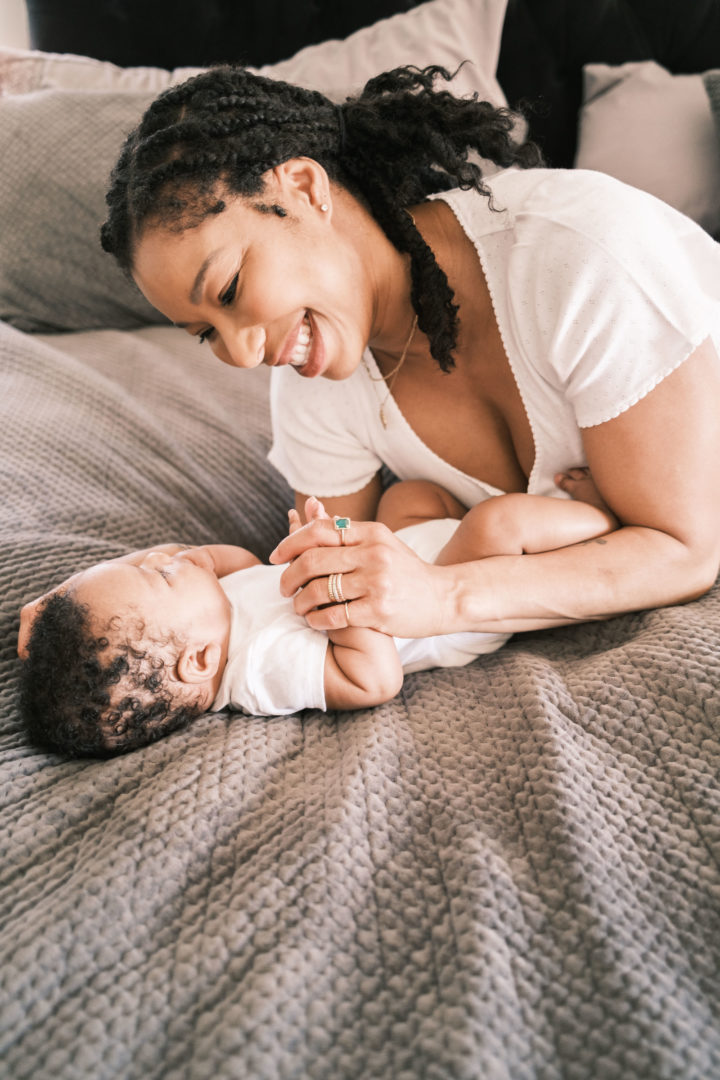
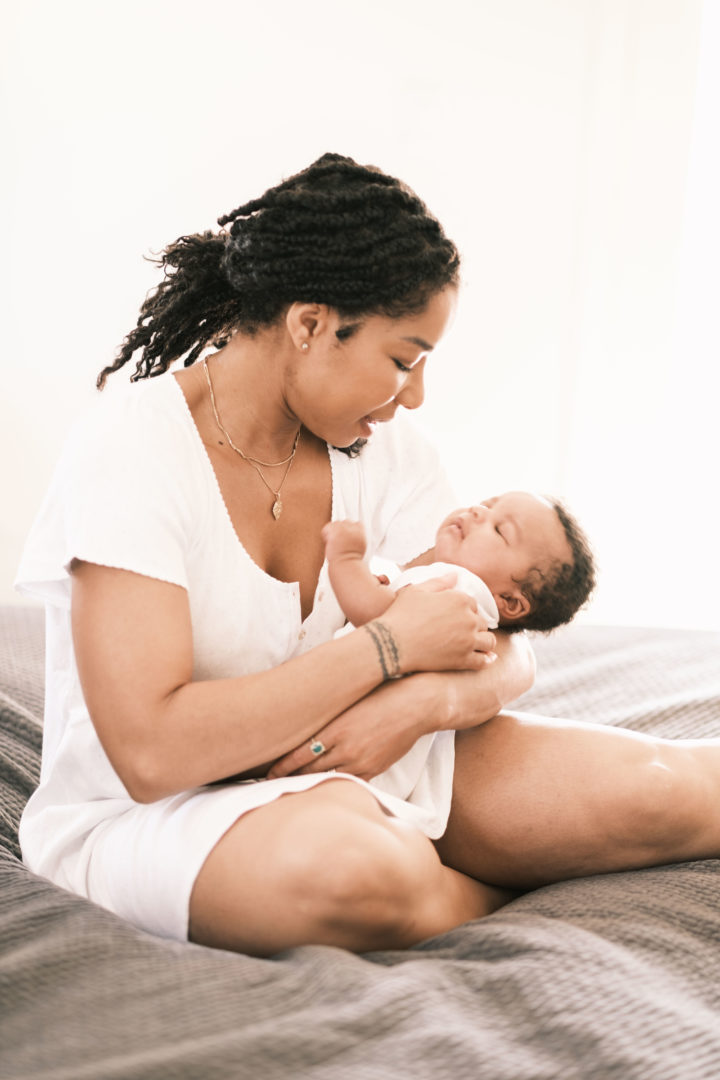
Feeling?
I’m feeling amazing as I settle into mom-life—which, as you know, is all-consuming.
Path to pregnancy?
I got pregnant naturally, which is really important to note considering I suffered from uterine fibroids and infertility issues for over five years. From the start, I knew that my fibroids were an issue; I saw countless doctors, many of which told me I needed a hysterectomy and would likely never conceive. Finally I found the leading specialist in fibroids who said I didn’t need a hysterectomy and we would figure this out together.
He performed a fibroid myomectomy surgery to remove the fibroids, but I still wasn’t pregnant when Covid hit in early 2020 so, I decided to make several significant lifestyle changes, including my diet, physical activity, and stress management; they aren’t sure what causes fibroids, but these are all contributors. I became vegan, ate cleaner, bought an Alkaline water machine, and meditated daily. If nothing took, the plan was to start IVF treatments in January of 2021. However, as it turns out, the lifestyle changes coupled with the surgery made a massive impact, and in May of 2020, I found out I was pregnant…naturally!
How do cysts effect conceiving?
Fibroids are tiny cysts all over your uterus on the inside and out. In my case, I had one right on the lining of my uterus, preventing any eggs from attaching. My body was releasing a hormone trying to get rid of the fibroid, but it also stopped my chance at pregnancy.
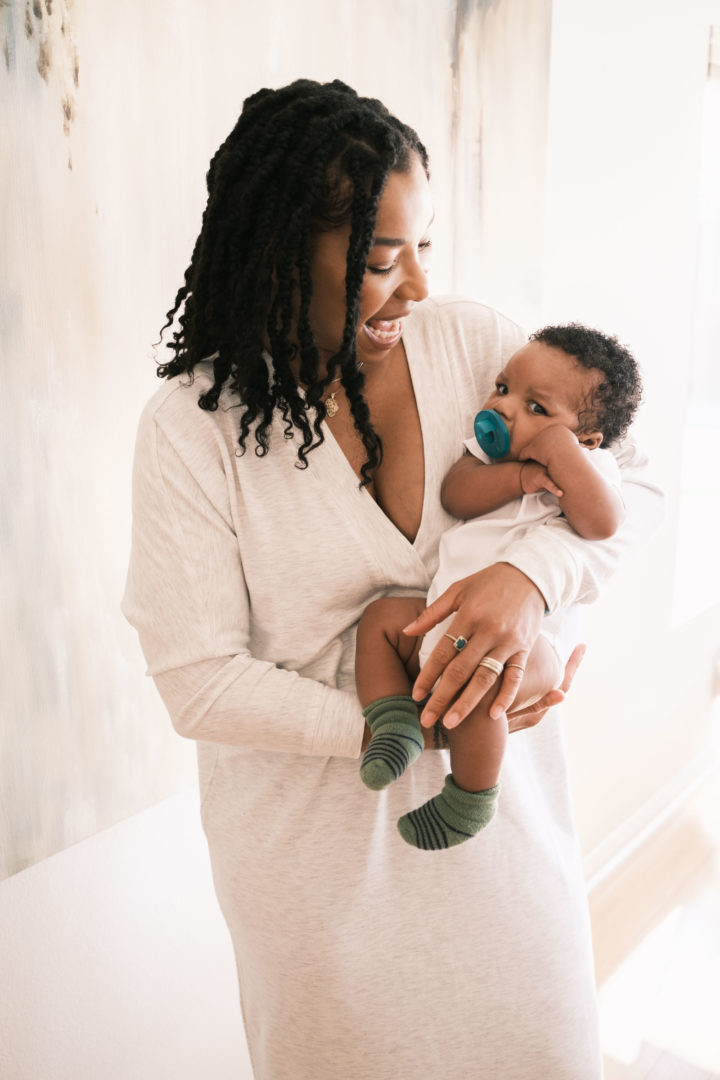
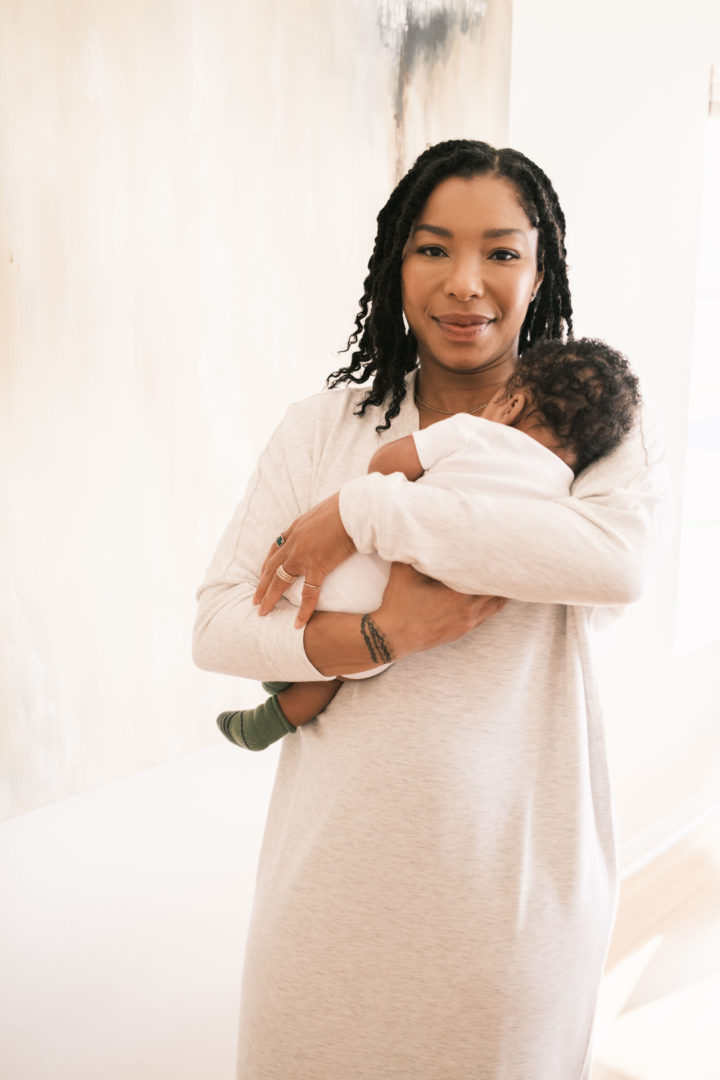
Birth Story?
Now, here’s the thing, when you have fibroid myomectomy surgery, one of the things they tell you is that you can’t deliver naturally; it must be a C section because you have so many tiny incisions on your uterus that could rupture.
In my case, my baby wasn’t due until February 17, but I had a planned C-section at 37 weeks because I couldn’t risk going into labor. If I went into labor, there would be a chance, like I said, that some could rupture, and it was just too dangerous. However, there are other risks to consider. While a baby at 37 weeks is regarded as nearly full-term, there can still be complications, which we had. My son’s lungs were underdeveloped, and because he did not go through the birth canal, he didn’t push all the fluid out of his lungs which caused breathing issues; he was in the NICU for 10 days. As a mother, it was overwhelming; I would have rather assumed the risk, but my doctor kept reminding he’ll be okay, and I would not have been if we hadn’t done a C-section. All in, it was a difficult process for me.
While pregnant?
I had to be very careful as a high-risk pregnancy. I had fibroids, and was 38 years old (which is considered geriatric!), so I basically had to sit down for 9 months, which was easier to do last year because of Coronavirus, since I couldn’t do anything anyway. But I was not allowed to work out or do any extra physical activities.
Recovery?
The C-section went smoothly, but it’s still full abdominal surgery. Plus, right after I had him, I gained an excessive amount of water weight with the stress of him being in the NICU. I was actually bigger post-pregnancy as my body was trying to recover. I was supposed to rest, but I couldn’t because I was too focused on going back and forth to the hospital, which hindered my healing and caused severe inflammation. You know, your birth story is your birth story, and I had a whole plan that went out the window. Although the minute I saw his face, none of it matter. It was all so worth it.
Breastfeeding?
As for breastfeeding, initially, I’d “planned” to solely breastfeed but since he was in the NICU and I couldn’t touch or see him for four days, I had to pump around the clock to get him as much breastmilk as possible—the breastmilk was necessary for his recovery as it’s loaded with so many valuable nutrients. It was tough for me to keep up with demand, so I started supplementing, and I still do so now. Even though this wasn’t part of the “plan,” I’ve learned you have to be flexible.
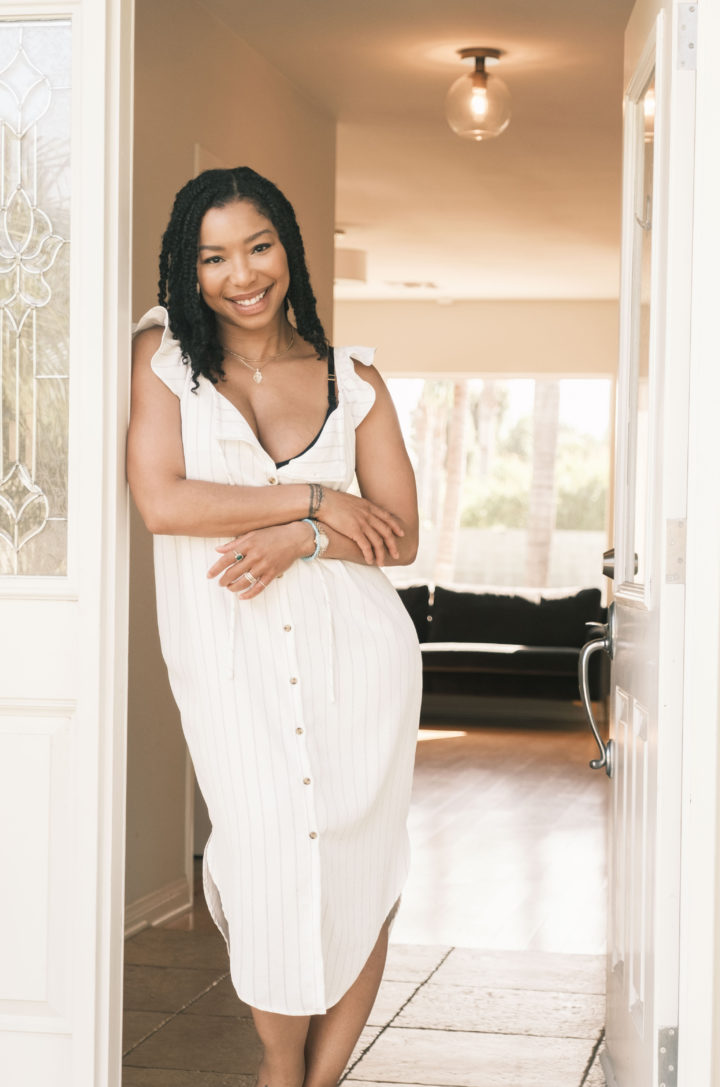
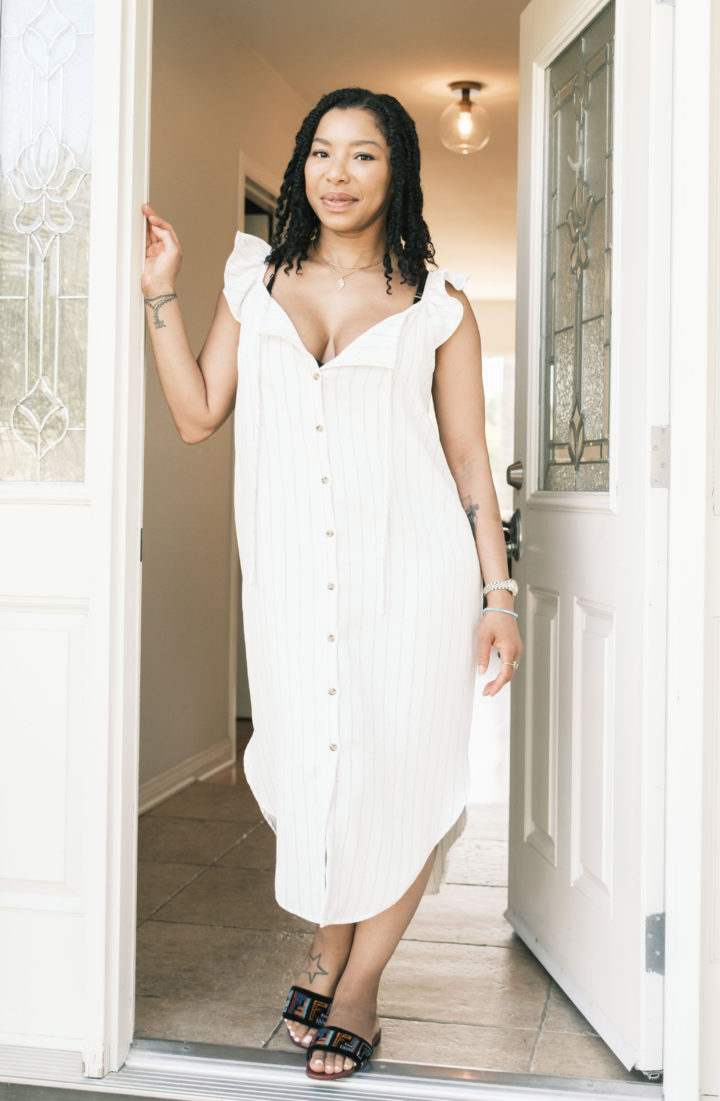
Advocating for Black maternal health?
When I became transparent with my audience about my struggles, I received over 1000 emails and DMS within three days—I’m talking about long messages of women telling me their stories—I was like, ‘Oh my goodness, we suffer from this at a disproportionate rate!’ Then and there, I realized how many Black women are struggling. I talked to the doctor who performed my fibroid surgery and he agreed that Black women experience this more frequently. Not to say that all women don’t, at some point in their life, have the possibility of producing fibroids, Black women tend to get them much younger and much larger in size, so they affect their fertility. Unfortunately, there haven’t been enough studies on it as Black women don’t trust the healthcare system enough to participate in trials. What I’ve found out from talking to these women, plus doctors, nutritionists, doulas, and midwives, is our diet plays a huge role along with stress–women who shift their diet seem to overcome their different struggles. Plus, since we don’t trust the healthcare system, we tend to seek help much later. Through my experience, it’s become my mission not just to inform my audience of what’s happening with me but also to give them a platform to come and speak to me or just speak about their different issues.
Healthy baby, healthy uterus?
My son is home and completely healthy! He is above his weight and developing beyond what we expected; he’s meeting and surpassing every milestone. I am beyond grateful.
As for my uterus, once you have a baby, it fully repairs itself… which is wild to thing! My issue with fibroids is gone. I still have the incision on my uterus, so if I were ever to have another baby, I would have to have a C-Section, but otherwise, there are no issues.
Ironically now we have to actually be careful because I can get pregnant!
One hope?
I don’t think the fear of being a Black woman with a Black son will ever go away. Even though I have a Black father, a Black husband, and a Black brother now that I’m raising a Black son, it hits me in a whole new way. I have a responsibility to keep him safe. Seeing everything I went through from being in the NICU to breastfeeding him and staying up at night only to think that somebody may not value his life! It’s a hard pill to swallow, but I believe that people are beginning to pay attention. All this to say, my hope for the future is to raise my little boy in our community and world without having to worry about him leaving my house and never coming back. That is my prayer for the future that all the little boys growing up, like him, will be able to live with joy; I don’t ever want his joy muted just because he’s a Black voice.
Any advice?
Be your own advocate. If I accepted the first, second, or third diagnosis to get a hysterectomy, I would not be sitting here having a conversation with my beautiful baby in arms. I needed to continue to fight for what I knew I wanted. I knew I was supposed to be a mother, so I didn’t allow the diagnosis’ to defeat me or the outcome I wanted. So, yes, speak up for yourself.
I hope by making my story accessible for women, I can help even one woman’s trajectory. If I had read someone’s story like mine years ago, maybe I would have felt more empowered sooner. I want people to hear my story hoping that it’ll inspire them and encourage them to fight and advocate for themselves because that’s what we have to do.
